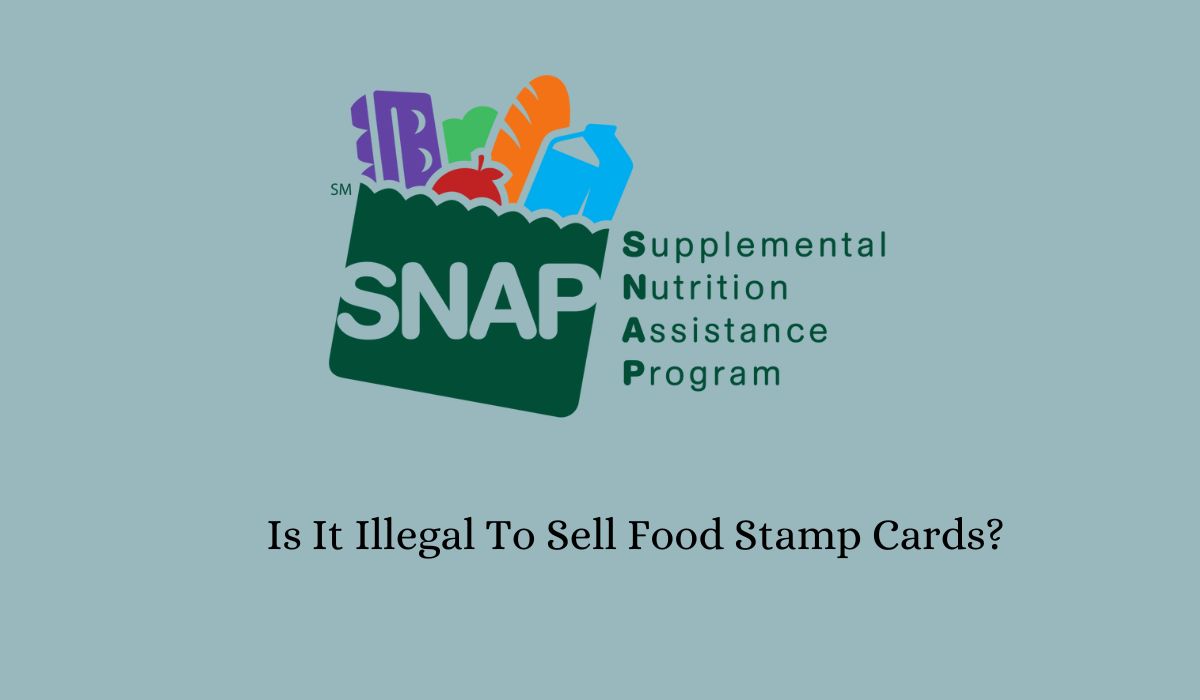As a citizen of the United States, you may have heard about food stamp cards or SNAP (Supplemental Nutrition Assistance Program). These government-issued cards are used to purchase food items for individuals and families in need.
However, you may wonder if it is legal to sell these cards for cash or other goods. In this article, I will discuss the legality of selling food stamp cards and the consequences that come with it.
The Legality of Selling Food Stamp Cards
Federal and State Regulations
Under federal law, selling, trading, or transferring SNAP benefits or EBT cards for cash or non-eligible items is strictly prohibited.
This prohibition is not just a guideline but a legal requirement enforced by the United States Department of Agriculture (USDA), which oversees the SNAP program.
Additionally, state agencies responsible for administering SNAP also have regulations and enforcement mechanisms in place to prevent and penalize such activities.
The Concept of Trafficking
The act of selling or exchanging EBT cards for cash or other ineligible items is referred to as “trafficking.” Trafficking SNAP benefits is considered a violation of federal law.
It undermines the purpose of the program, which is to provide nutritional assistance to those in need, and diverts resources away from eligible recipients.
Consequences of Selling Food Stamp Cards
Legal Repercussions
Individuals caught selling or trading their EBT cards can face severe legal consequences. These may include criminal charges, fines, and imprisonment. The severity of the punishment often depends on the amount of benefits trafficked and the frequency of such violations.
Disqualification from SNAP
Apart from legal consequences, individuals involved in trafficking SNAP benefits are subject to administrative penalties, including temporary or permanent disqualification from the program. This means that they will lose access to the critical food assistance they may need.
Impact on Others
The illegal sale of food stamp cards also has broader implications. It can lead to increased scrutiny and stigmatization of all SNAP recipients, many of whom rely on these benefits for their daily sustenance.
Furthermore, it can prompt stricter regulations and oversight, making it more challenging for eligible individuals to access the benefits.
The Importance of Adhering to SNAP Regulations
Ensuring Assistance Reaches the Needy
Adhering to SNAP regulations, including not selling EBT cards, is vital to ensure that the assistance reaches those who genuinely need it. The program is designed to support nutritional needs, and any misuse diverts resources away from this goal.
Maintaining Public Trust
Compliance with SNAP rules also helps maintain public trust in the program. Misuse of benefits can lead to public outcry and calls for more restrictive measures, which could harm those who depend on SNAP.
Legal and Ethical Responsibility
Lastly, it is both a legal and ethical responsibility for recipients to use SNAP benefits as intended. Misusing the program not only has legal ramifications but also undermines the ethical principle of supporting the less fortunate in society.
Conclusion
It is illegal to sell food stamp cards or trade them for cash or non-eligible items. Doing so can result in severe legal consequences, disqualification from the program, and negative implications for others who rely on SNAP benefits.
As recipients of these benefits, we have a responsibility to comply with regulations and use the assistance as intended to ensure that those who truly need it receive the support they require.
